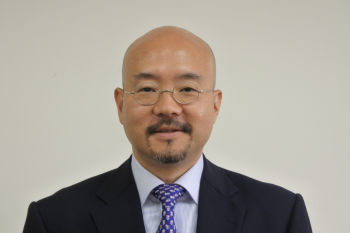Events

January 2019
H.E. Mr. Seiko Ishikawa, Ambassador of the Bolivarian Republic of Venezuela
UPDATE: Feb 18, 2019
Dialogue, Ending the Economic War and the Lifting of Sanctions Solve the Crisis
— Ambassador Ishikawa has been serving in Japan since 2005. How would you overview the development of the relationship between Venezuela and Japan that celebrated last year the 80th anniversary of diplomatic relations?
The relationship between Venezuela and Japan, which began in 1938, have been characterized by friendship, cordiality and mutual respect. Traditionally, these links have been shaped towards a solid commercial exchange, together with the development of Japanese investments and cooperation programs in different areas in Venezuela. Japanese communities in my country have played an important role in our development since their arrival 90 years ago. Upon the start of my Mission in 2005, culture and music plays an increasing role in the people to people exchanges, especially through the Venezuelan miracle “El Sistema”, a social and artistic program for children through orchestras and choirs. The visits of our national orchestras to Japan left a lasting impression and in 2012 we started two programs in Soma (Fukushima) and Otsuchi (Iwate) inspired by El Sistema, for the emotional recovery of children in the affected areas of the 2011 Earthquake and Tsunami. Last year, we started the program in Komagane (Nagano) and created the White Hand Chorus of Tokyo, for challenged children with hearing disabilities and visual impairment. They best represent one of the pillars of El Sistema, social inclusion.
— As Ambassador to Japan, which areas would you like to focus your efforts for reinforcing the bilateral ties?
Japan is a country of geostrategic importance for Venezuela because of its great potential in the economic, commercial, scientific, technological, infrastructure fields.Bilateral relations have deepened, based on the principle of technological and industrial complementarity with the potentialities of the Venezuelan energy resources, and the financing vehicles and capacity training that Japan has to offer. The energy potential that Venezuela has – for its natural resources, such as oil and minerals – is fundamental in the progress and evolution of the bilateral cooperation projects, with the promotion of Japanese investment in my country.One area of great potential we have identified is Science and Technology cooperation and the adoption in Venezuela of the Japanese Standard ISDBT of Digital Terrestrial Television is a key example.
— How would you describe the features of Venezuela to Japanese People?
Venezuela has been known among Japanese for its oil, beauty queens and baseball. Recently three more elements are increasingly noted: the Angel Falls, the high quality of its cacao, and the Venezuelan miracle: El Sistema.
— Why is the political situation in Venezuela unstable?
Since the beginning of the Bolivarian Revolution in 1998, the Venezuelan Government has defended the Bolivarian model, based on the universal principles of respect for sovereignty of States, self-determination of peoples, independence of nations, social justice and democratic values, as it emerged as a resistance to the Monroe Doctrine, which has been in place for the last almost 200 years and invigorated under the Trump administration. It is a historic conflict between an interventionist doctrine and the Bolivarian model, defended and elected by its people through 22 national and local elections in the last 20 years. There is ample evidence of the meddling by the U.S. in the political process in Venezuela, and much so in an open and aggressive approach since the start of the Trump administration. There has been an economic war against the country and many attempts at external intervention, including organizing and financing the failed coup against President Chavez in 2002 and the assassination attempt against President Maduro last year, and the latest open calls by President Trump for “regime change” and military intervention in Venezuela. This confrontation gets amplified if you consider geostrategic elements. Venezuela holds the largest oil reserves in the planet, only 4 days from the main receiving ports of the biggest oil market, the U.S.
— At the Summit meeting in May 2018, there was concern about increasing displaced people escaping to neighboring countries due to serious difficulties. How does the Venezuelan government respond?
The U.S. sanctions on Venezuela are aimed at undermining its economy, create a narrative of “humanitarian crisis” and facilitate a “regimen change” and military “humanitarian intervention”.This resembles the economic war that President Nixon waged against Salvador Allende in Chile in 1970’s, which ended with the coup d’état by Augusto Pinochet. Certainly, Venezuela is experiencing serious economic problems, but they are not created by unjust policies, but rather due to external factors like economic sanctions and punitive financial blockade. Alfred de Zayas, UN Independent Expert, stated recently: “The solution of the Venezuelan “crisis” lies in good faith negotiations between the government and the opposition, an end to the economic war, and the lifting of sanctions.” According to the International Organization for Migration (IOM), Venezuela is the Latin American country that has protected migrants the most, and continues to occupy second place in South America as a recipient of migration and as with the less flow of migrants in the Latin American continent. We are also the country with the fewest volunteer migrants in our continent. In Venezuela, there are currently 5,600,000 Colombians, most of them are refugees who fled because of the internal armed conflict in their country. They enjoy our social programs with complete respect and guarantee for their Human Rights, just as it should be among brotherly countries.
(Interview by Shu Tamaru, FEC Counsellor)